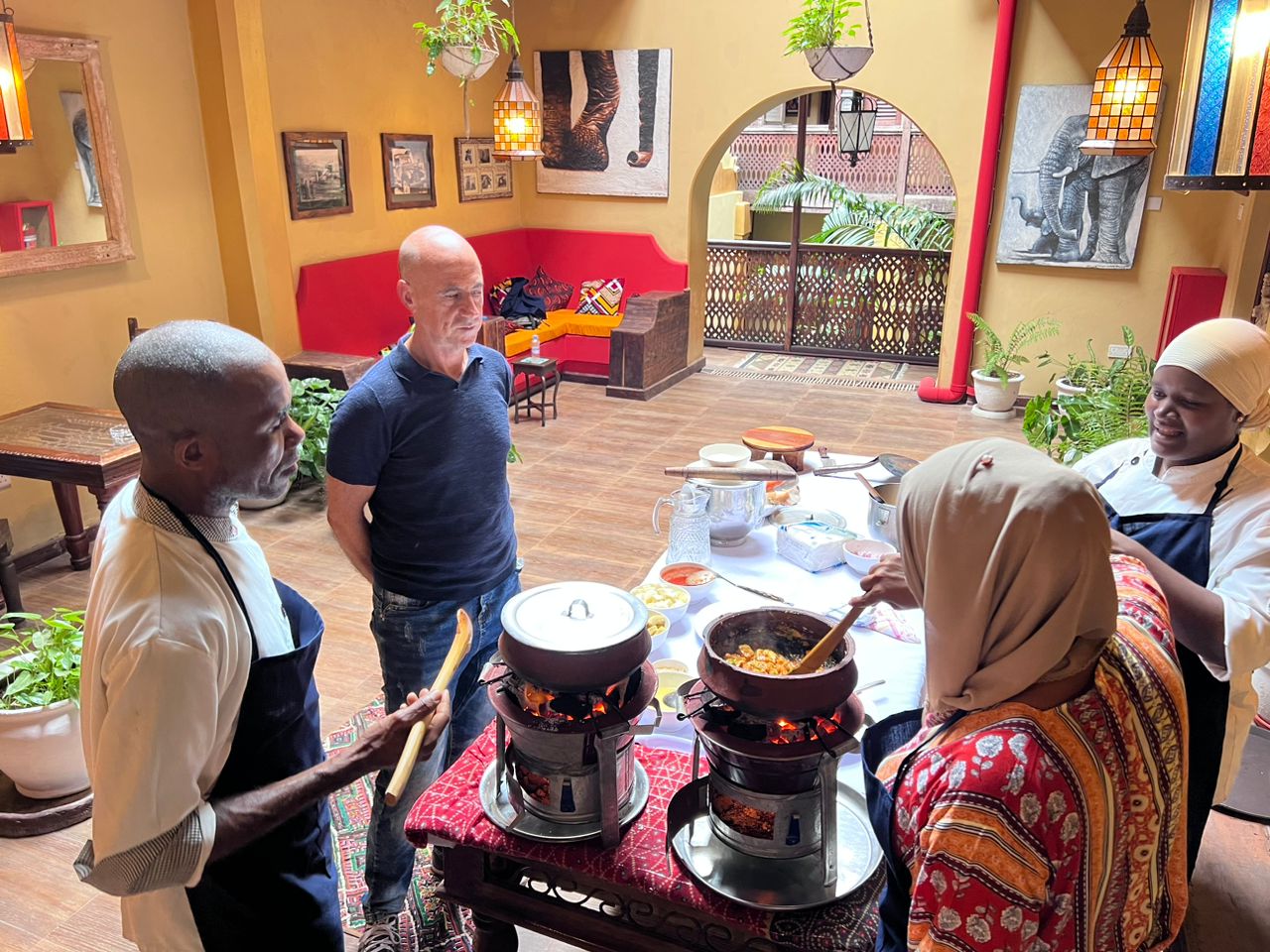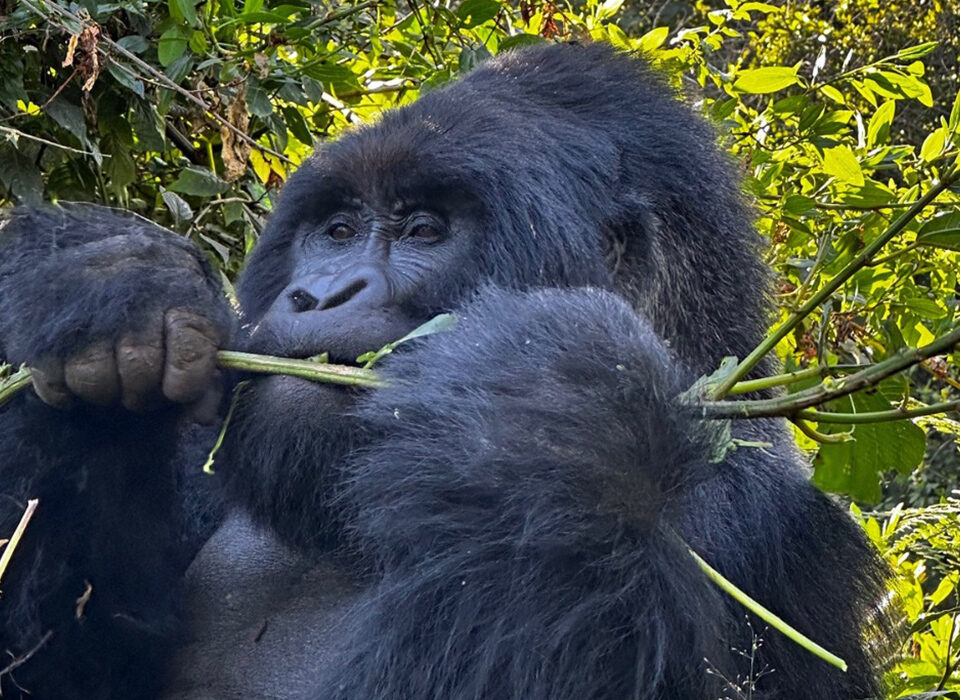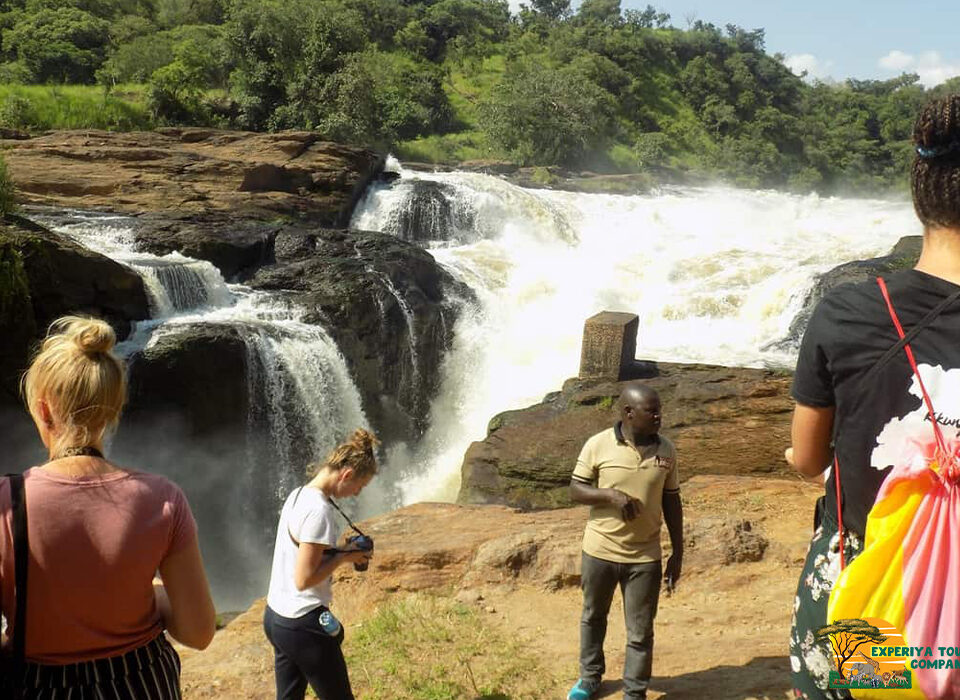
What’s the nightlife like in Nairobi?
November 20, 2025
Are there food festivals in Kenya?
November 20, 2025Can I Join a Swahili Cooking Class?
For travelers who love exploring cultures through their food, Kenya offers far more than its celebrated wildlife and landscapes. One of the most immersive and rewarding cultural experiences you can enjoy in the country is joining a Swahili cooking class. These classes open a doorway into the coastal traditions of Kenya—flavors shaped by centuries of trade, cultural fusion, and culinary creativity along the Swahili Coast. This raises a delightful question many travelers ask: Can I join a Swahili cooking class? The answer is absolutely yes. Swahili cooking classes are available in several parts of Kenya and offer hands-on, sensory-rich experiences that bring you closer to East African culture in the most delicious way.
Swahili cuisine is a vibrant blend of African, Arab, Persian, Indian, and Portuguese influences, reflecting the cosmopolitan history of coastal cities such as Lamu, Mombasa, and Malindi. The food is aromatic, richly spiced, colorful, and full of character—slow-cooked curries, coconut-infused rice dishes, freshly baked breads, grilled seafood, tropical snacks, and sweet treats that awaken every sense. Joining a Swahili cooking class allows travelers not only to taste these dishes but to understand their stories, techniques, and cultural significance.
What Makes Swahili Cuisine Unique?
To truly appreciate a Swahili cooking class, it’s essential to understand what makes this cuisine so extraordinary. Swahili food reflects the multicultural history of Kenya’s coast, shaped by centuries of maritime trade across the Indian Ocean. Traders from the Middle East, India, China, and Persia brought spices, cooking techniques, and ingredients that blended seamlessly with local African traditions.
The hallmark of Swahili cuisine includes:
Coconut milk
Cloves, cardamom, cinnamon, and cumin
Fresh seafood
Rice dishes such as pilau and biryani
Chapati and mandazi
Sweet treats like viazi karai and mahamri
Spicy sauces, chutneys, and relishes
Swahili dishes are fragrant, richly spiced but not overwhelmingly hot, and beautifully balanced with flavors both savory and sweet.
What Happens in a Swahili Cooking Class?
A Swahili cooking class is typically designed to be hands-on, interactive, and fun. Travelers get to roll up their sleeves and enjoy the process step by step. Here is what you can expect from a full Swahili culinary experience:
1. A Market Tour
Many Swahili cooking classes begin with a guided visit to a local market. Here, you learn how to select the freshest vegetables, spices, coconuts, and seafood. You walk through lively stalls filled with colorful produce and aromatic spice shops.
Travelers often get to:
Smell and sample spices
Learn how to choose ripe tropical fruits
Watch coconuts being grated
Interact with local vendors
This introduction sets the tone for the class, grounding the experience in Kenya’s vibrant food culture.
2. Traditional Swahili Cooking Techniques
Once in the kitchen—either a professional cooking studio, a restaurant, or a coastal home—you begin preparing dishes under the guidance of a Swahili chef. You learn traditional cooking methods such as:
Crushing spices in a mortar
Cooking rice in coconut milk
Preparing pilau masala from scratch
Frying snacks in seasoned oils
Slow-simmering curries
Grating fresh coconuts for milk extraction
These techniques have been passed down through generations and form the heart of Swahili cuisine.
3. Cooking Signature Swahili Dishes
Depending on the class, you may learn how to prepare a variety of Swahili favorites. Some of the most common dishes taught include:
Pilau
A richly spiced rice dish cooked with pilau masala, onions, and sometimes vegetables or meat. It is aromatic and deeply flavorful.
Biryani
An Indian-influenced layered rice dish known for its color, fragrance, and blend of spices. Swahili biryani often includes vegetable or seafood variations.
Chapati
A soft, layered flatbread that is rolled, folded, and pan-fried to golden perfection.
Mahamri
Sweet, triangular Swahili donuts flavored with coconut and cardamom.
Viazi Karai
Potatoes dipped in a spicy batter and fried until crispy—popular street food along the coast.
Kachumbari
A fresh, tangy salad made from tomatoes, onions, cilantro, and lime.
Coconut-Based Curries
Vegetarian curries made with coconut milk, turmeric, cumin, and seasonal vegetables.
Swahili Tea (Chai ya Tangawizi)
A warming tea infused with ginger, cardamom, and cinnamon.
The experience often involves preparing several dishes so that you can enjoy a full Swahili meal by the end of the session.
4. Sitting Down to Enjoy Your Meal
After hours of chopping, stirring, frying, simmering, and learning, you sit down with your group to enjoy the feast you’ve prepared. This shared meal is often the highlight of the class—full of conversation, cultural exchange, and laughter.
Travelers frequently describe this moment as warm, communal, and incredibly satisfying.
5. Recipes to Take Home
Most cooking classes provide recipe cards, spice samples, or notes so you can recreate the dishes at home. Many travelers cherish these souvenirs as reminders of their cultural journey.
 Where Can You Join a Swahili Cooking Class in Kenya?
Where Can You Join a Swahili Cooking Class in Kenya?
Swahili cooking classes are offered in several regions, each offering its own unique flavor and setting.
1. Mombasa
As the heart of Swahili culture, Mombasa is the most popular destination for cooking classes. You can find classes in:
Old Town
Nyali
Bamburi
Shanzu
The atmosphere is authentic, lively, and historically rich.
2. Lamu
Lamu Island offers deeply traditional cooking experiences. Classes in Shela Village or Lamu Town often take place in coastal homes with views of the sea. Here, you learn recipes passed down through generations.
3. Malindi and Watamu
These coastal towns have vibrant Italian and Swahili communities, creating an exciting hybrid food culture. Cooking classes here often feature seafood-focused dishes.
4. Nairobi
Surprisingly, you can also join excellent Swahili cooking classes in Nairobi. Several culinary studios teach Swahili dishes with a modern twist.
These classes are ideal for travelers who may not have time to visit the coast but still want an authentic Swahili food experience.
Who Can Join a Swahili Cooking Class?
Swahili cooking classes are open to everyone:
Solo travelers
Couples
Families
Foodies
Beginners
Experienced home cooks
Cultural explorers
The dishes are easy to learn and enjoyable to prepare, making it a fun activity for all ages and skill levels.
What You Will Learn Beyond Cooking
A Swahili cooking class is much more than a cooking lesson—it is a cultural immersion.
You learn about:
The history of the Swahili Coast
Traditional spice routes
Cultural symbolism in food
How food brings communities together
Traditional serving customs
Local etiquette and hospitality
Cooking becomes a gateway into Swahili identity, lifestyle, and history.
Why Swahili Cooking Classes Are Popular Among Travelers
Swahili cooking classes are increasingly popular because they offer:
Authentic culture
Hands-on experiences
Delicious food
Beautiful memories
Direct interaction with locals
A break from typical tourist attractions
It is an activity that turns food into a story—a story you get to taste, learn, and take home.
Tips for Joining a Swahili Cooking Class
Book in advance, especially in coastal towns
Wear comfortable clothing
Be open to trying new flavors
Ask questions—chefs love sharing knowledge
Take photos and notes
Try the market tour if offered
Come hungry
These simple steps can make the experience even more enjoyable.
So, Can You Join a Swahili Cooking Class?
Yes—joining a Swahili cooking class is one of the most memorable cultural experiences you can enjoy in Kenya. Whether you’re in Mombasa, Lamu, Malindi, Watamu, or even Nairobi, these classes offer an intimate, flavorful, and educational journey into Kenya’s coastal cuisine. You learn how to prepare iconic dishes, explore rich culinary traditions, and connect with local communities—all through the power of food.
Experience Swahili Cooking With Experiya Tour Company
To ensure a smooth, authentic, and enjoyable Swahili cooking class experience, book with a professional tour operator. Experiya Tour Company offers curated Swahili cooking adventures that include market tours, guided cooking sessions, and immersive cultural experiences across Kenya’s coast and major cities. Their expert team ensures you enjoy an unforgettable culinary journey filled with learning, flavor, and fun. For the best Swahili cooking classes in Kenya, book your experience with Experiya Tour Company.




